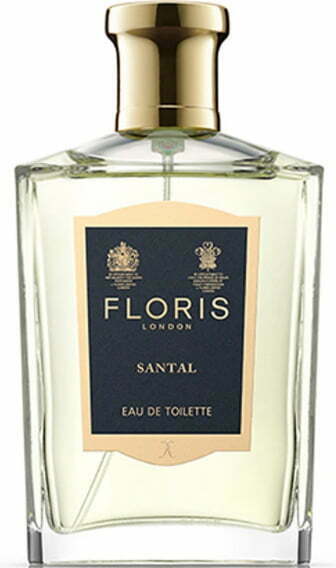MIREILLE MATHIEU

Mireille Mathieu (born 22 July 1946) is a French singer. She has recorded over 1200 songs in eleven languages, with more than 122 million records sold worldwide. Mireille Mathieu was born on 22 July 1946 in Avignon, France, as the eldest daughter of a family of fourteen children; the youngest brother was born after she moved to Paris. Her father Roger and his family were native to Avignon, while her mother Marcelle-Sophie (née Poirier) was from Dunkirk. She arrived in Avignon in 1944 as a refugee from World War II after her grandmother had died, and her mother went missing. Roger, with his father Arcade, ran the family stonemason shop just outside the Saint-Véran cemetery main gate. The Mathieu family have been stonemasons for four generations. Today the shop is named Pompes Funèbres Mathieu-Mardoyan, owned and managed by her sister Réjane’s family.
The Mathieu family lived in poverty, with a huge improvement in their living conditions in 1954, when subsidized housing was built in the Malpeigné quarter near the cemetery. Then again in 1961 they moved to a large tenement in the Croix des Oiseaux quarter southeast of the city. Roger had once dreamed of becoming a singer, but his father Arcade disapproved, inspiring him to have one of his children learn to sing with him in church. Mathieu included her father’s operatic voice on her 1968 Christmas album, where it was mixed in with the Minuit Chrétiens song. Mathieu’s first paid performance before an audience, at age four, was rewarded with a lollipop when she sang on Christmas Eve 1950 during Midnight Mass. A defining moment was seeing Édith Piaf sing on television.
Mathieu performed poorly in elementary school because of dyslexia, requiring an extra year to graduate. She was born left-handed, and her teachers used a ruler to strike her hand each time she was caught writing with it. She became right-handed, although her left hand remains quite animated while singing. She has a fantastic memory, and never uses a prompter on stage. Abandoning higher education, at age 14 (1961), and after moving to Croix des Oiseaux, she began work in a local factory in Montfavet (a suburb southeast of town) where she helped with the family income and paid for her singing lessons. Popular at work, she often sang songs at lunch, or while working. Like her parents, she is a short woman at 1.52 m (5 feet) in height. Her sister Monique (French: [mo.nikə]), born on 8 July 1947, began work at the same factory a few months later. Both were given bicycles on credit to commute with, making for very long days, and many bad memories of riding against the mistral winds. The factory went out of business, so Mathieu and two sisters (Monique, and Christiane) became youth counselors at a summer camp before her rise to fame, a summer where she had her fortune told by Tarot cards by an old Gypsy woman, saying she would soon mingle with kings and queens.
Mathieu is Roman Catholic, and her adopted patron saint is Saint Rita, the Saint for the Impossible. Mathieu’s paternal grandmother Germaine née Charreton, assured her that Saint Rita was the one to intercede to God for hopeless cases. Beyond religion, like many artists, she is unabashed about superstition and luck. When asked to reveal some of her superstitions, she said: “The most important one is to never mention any of them.” She has stage fright, and can often be seen making the sign of the cross before moving out on stage.
Mathieu began her career by participating in an annual singing contest in Avignon called On Chante dans mon Quartier (We sing in my neighborhood). Photos depict the affair as rather drab with a cheap curtain and one projector light. The stage was only twenty feet square, and the singer had to share it with a large piano and musicians. A large, boisterous, and mostly young audience was very much in evidence. The judges sat at a table in front of and below the elevated stage. Anyone who signed the contract in the weeks before the show was allowed to sing. Talent scouts made this a worthwhile event for singers to participate in from hundreds of miles around.
Mathieu’s private singing lessons were by Madame Laure Collière, who was also a piano teacher in Avignon. Self-described as very stubborn in her autobiography, she wrote about singing love songs that the audience thought inappropriate for a young girl, thus losing to Michèle Torr in 1962 when she sang “Les cloches de Lisbonne” at the first contest, and losing again in 1963 singing Édith Piaf’s “L’Hymne à l’amour”. In 1964, though, she won the event with another Piaf song: “La Vie en rose”.
Her win was rewarded with a free trip to Paris, and a pre-audition for the televised talent show Jeu de la Chance (Game of Luck), where amateur singers competed for audience and telephone votes. Her participation and train fare were arranged by Raoul Colombe, the deputy mayor of Avignon. Accompanied by a pianist at the studio, and dressed in black like Piaf, she sang two Piaf songs to the audition judges and left dispirited: Parisians at the studio made fun of her Provençal accent, and her dyslexia scrambled words. For example, her sister and current manager Monique, is called “Matite” because Mathieu could not pronounce “petite” as a child.













